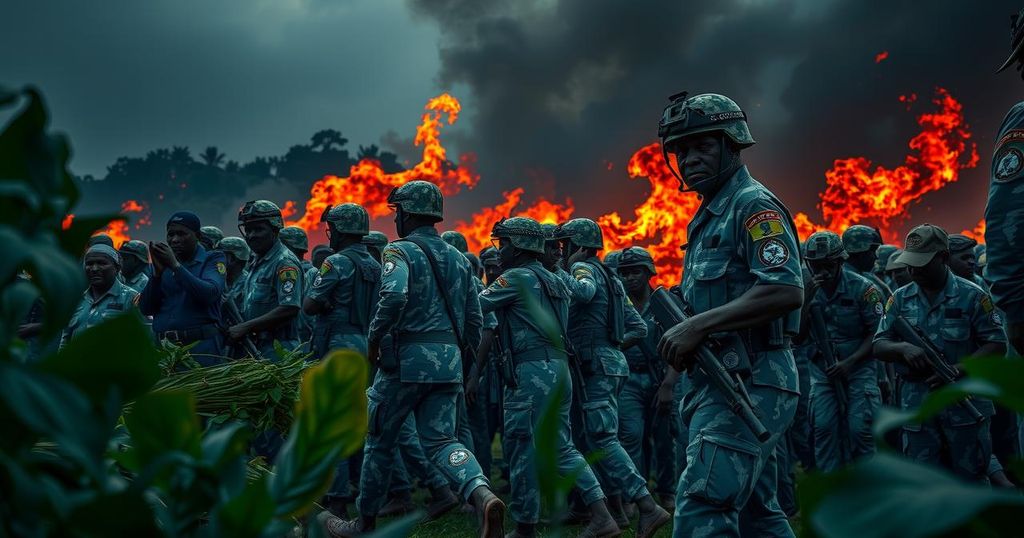Concerns Over Constitutional Changes Amidst Crisis in the Democratic Republic of Congo
The Democratic Republic of Congo faces dire socio-economic conditions and rising citizen discontent amidst efforts by President Felix Tshisekedi to amend the constitution, raising concerns about potential power retention strategies. Historical context, particularly regarding former President Joseph Kabila, highlights the risks associated with attempts to alter political structures, as the populace grows wary of self-serving political maneuvers in light of ongoing insecurity and economic challenges.
The Democratic Republic of Congo (DRC) finds itself at a critical juncture, as pervasive economic hardships and severe insecurity undermine the lives of its citizens. With the DRC ranked among the five poorest nations globally, millions struggle with poverty, food insecurity, and internal displacement due to the relentless activities of armed groups. Furthermore, the country is presently grappling with widespread Mpox infections, adding another layer to its crises. President Felix Tshisekedi, since his controversial rise to power in 2018, has faced growing discontent. Following flawed electoral practices in 2023, he now seeks to amend the constitution, deeming the current framework, ratified by referendum in 2005, as outdated and externally imposed. This initiative raises suspicions that the president’s actual motive is to alter presidential term limits, thereby potentially extending his tenure before the expiration of his current mandate. Historical precedent echoes through the DRC’s political landscape, with former President Joseph Kabila’s attempts to prolong his presidency through constitutional changes leading to his eventual unpopularity. Tragically, Tshisekedi appears to be disregarding the lessons learned from Kabila’s presidency, seeming unaware that efforts to resist term limits and political coups are intertwined phenomena. Amidst significant global interest in the country’s mineral resources, Tshisekedi may perceive limited international consequences for his actions, possibly exacerbating local dissent.
The DRC is marked by a wealth of natural resources yet faces enduring socio-economic challenges, leading to deep-seated distrust among its populace toward the government. As armed groups proliferate in the eastern regions, contributing to insecurity and displacements, the public mood is increasingly skeptical of political leadership. Under these circumstances, attempts for constitutional reform by political figures—such as President Tshisekedi—are met with apprehension as they may signal ulterior motives pertaining to power retention rather than genuine national interest.
The situation in the Democratic Republic of Congo is critical, with widespread citizen distrust and ongoing socio-economic struggles complicating governance efforts. President Tshisekedi’s proposals for constitutional amendments risk igniting further public unrest, particularly with historical parallels drawn from Joseph Kabila’s tenure. As the tensions mount and the international community turns a blind eye, the potential for instability, driven by the quest for personal and political power, poses a significant threat to the Congolese populace and the nation’s future stability.
Original Source: www.africa.com




Post Comment